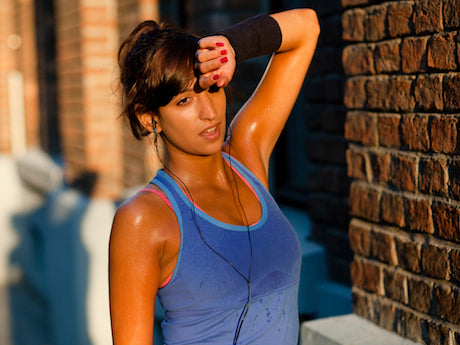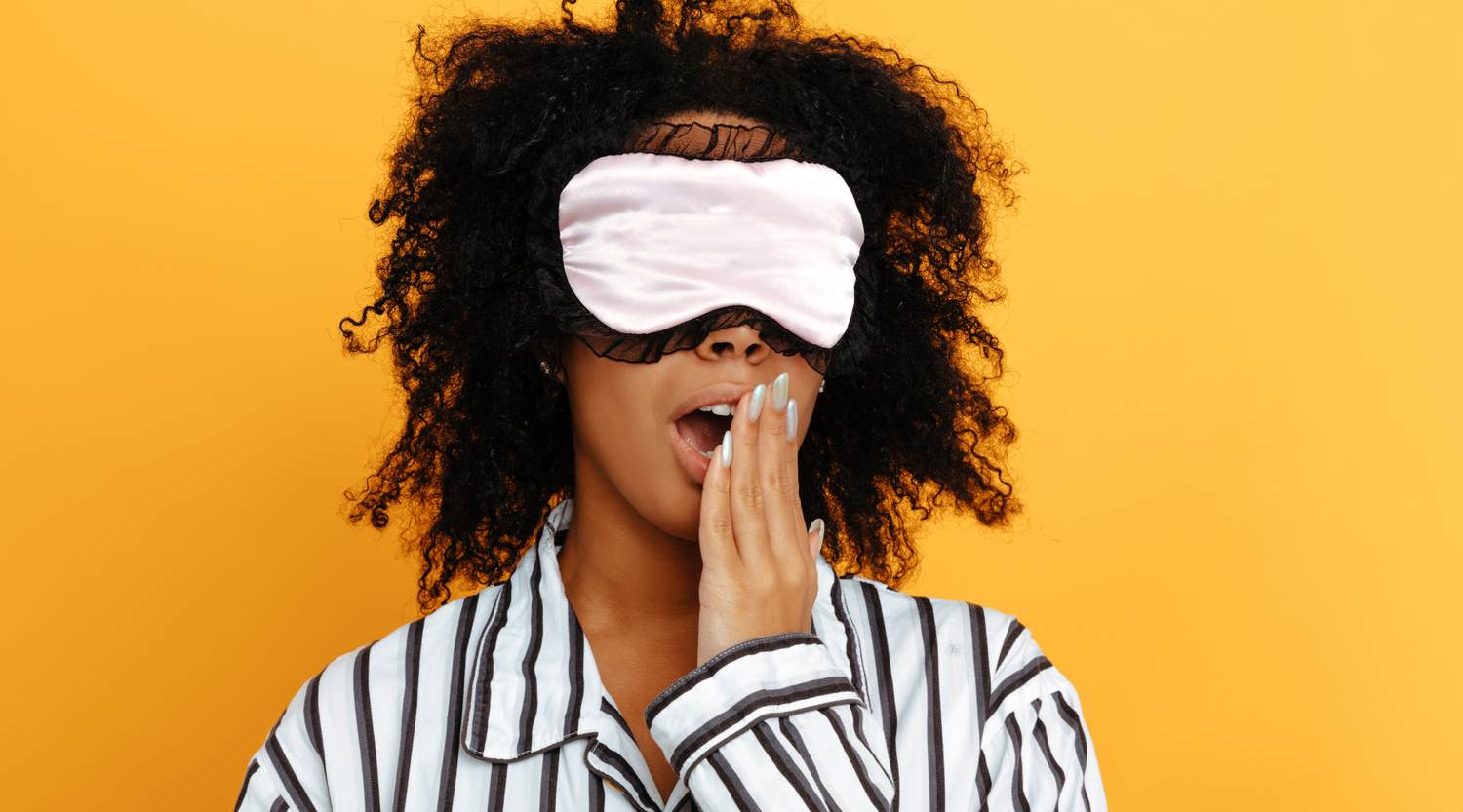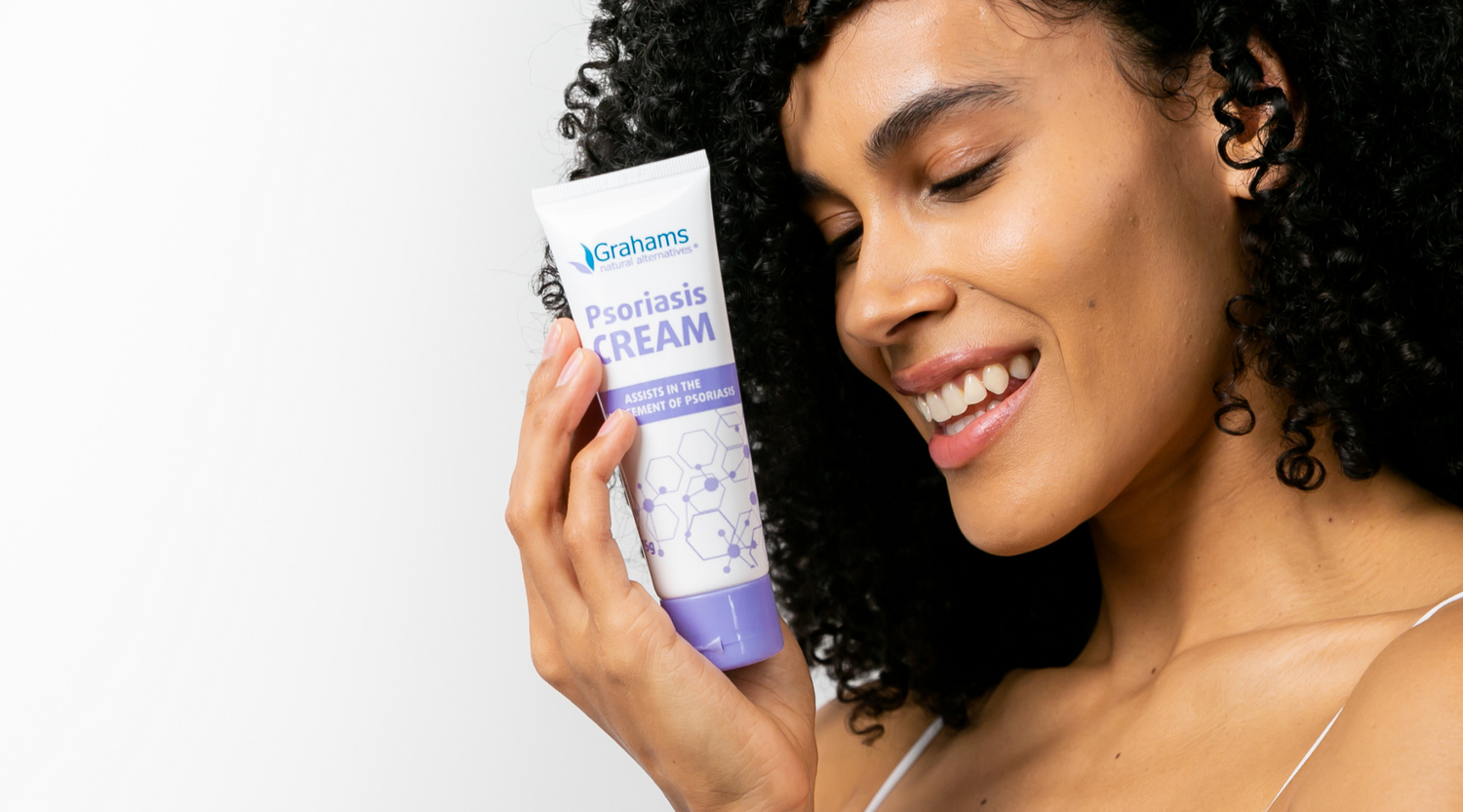It’s not your imagination, your sweaty workouts are a likely trigger of eczema flare ups. But that doesn’t mean you can’t exercise! We’ll explain how to better manage your eczema so you can still get the feel-good benefits of keeping active.
Sweat and Eczema
The primary function of sweat is to cool off the body, but that doesn’t stop this salty substance from causing overheating and irritation. While the perspiration does help cool down the body, the sweat itself can then cause the skin to sting. This is due to the loss of fluids during exercise, which can lead to dehydration of already dry skin. Sweat also contains sodium, urea and lactate, which can dry the skin even more.
Don’t sweat it
To make things worse, stressing about an eczema flare while you work out can actually trigger an itch. When we are in a stressful situation our body goes into fight mode causing it to retaliate by increasing the production of stress hormones called adrenaline and cortisol. However, if the body produces too much cortisol it creates an inflammatory response in our body, causing inflammation on our skin, such as the dreaded eczema rash. People who suffer from eczema are much more susceptible to an inflammatory response.
In addition to this, people with eczema are more vulnerable to “contagious itch”. Contagious itch is that peculiar phenomenon where you feel real itchiness after seeing someone scratch, hearing the sound of scratching, or even just seeing a picture of a creepy crawly.
Rubbing your skin can also induce itch, so take it easy wiping down with a scratchy gym towel.
Tips for Exercising with Eczema
See what works best for you!If your preferred choice of exercise causes eczema flare ups, why not change it up and see if a different exercise routine works for you?
If your usual workout causes high levels of sweating and overheating, such as cycling or running, you may want to try something less intense such as walking or Pilates.
You may want to try swimming. Chlorine in swimming pools can be a potential irritant for people with eczema. However, for others, swimming in a chlorinated pool has the same positive effect as taking a bleach bath. Apply the Body and Bath Oil prior to getting in the pool to act as a barrier. Be sure to shower soon after a swim to wash off any traces of chlorine left on the skin, and apply C+ Eczema and Dermatitis Cream to hydrate the skin.
An alternative to swimming in a chlorinated pool is to head outdoors to swim in the lakes, ocean or rivers. For some people, the salt water can soothe the skin, but for others, it can be very irritating. It’s important to rinse and moisturise before and after swimming in any natural body of water.
Opt for light, breathable gym wearMinimizing the irritation on the skin is important when working out with eczema. Choosing gym wear that is not tight will allow the skin to breathe and will reduce trapping of sweat in the skin. Try a loose fitting 100% cotton clothing as the fabric is light, loose fitting and wont rub or scratch the skin. For more information about eczema-friendly clothing, read this article.
Drink lots of water!It’s important to be hydrated before, during, and after a workout. Drinking fluids regularly will replace the water lost when sweating reducing the dehydration to the skin. Anyone that suffers from a skin condition, suffers from dry skin and eczema sufferers specifically have a weaker skin barrier function. Drinking plenty of water will help keep the body and skin hydrated.
Listen to your body!Take regular breaks to rest, re-hydrate and cool down your skin if you feel your body is starting to become hot or a flare may appear. Being realistic about the state of your eczema will help you choose an intensity level of your workout that is safe for your skin.
Moisturise before and after exercise!Applying emollients to eczema-prone skin will help tremendously in protecting your skin, and reducing the likelihood of flare ups. As the skin loses moisture and water through sweat, applying moisturiser, Eczema Cream or Body Oil before and after your workout means you will reduce the dehydration of your skin.

After a good sweat sesh, make sure to wash off sweat rather than let it dry on the skin. We know it can be tempting to have a hot shower or bath after exercise to relax the muscles, but this can dry out your skin and result in an uncontrollable itch after you step out. Start with a warm shower and gradually make it cooler.
Your local gym might supply you with shower products but it’s best to bring your own instead. This way you know what’s going on your skin, and you don’t risk a reaction for the sake of convenience.
Benefits of Exercise for Eczema
Physical activity and exercise can do wonders for physical and mental health, from controlling weight, reducing stress, and releasing endorphins. These benefits outweigh the time and care needed to prepare.
The message is clear: don’t let your eczema stop you from working out, but you might have to adjust what you do or compromise on the frequency and intensity.





